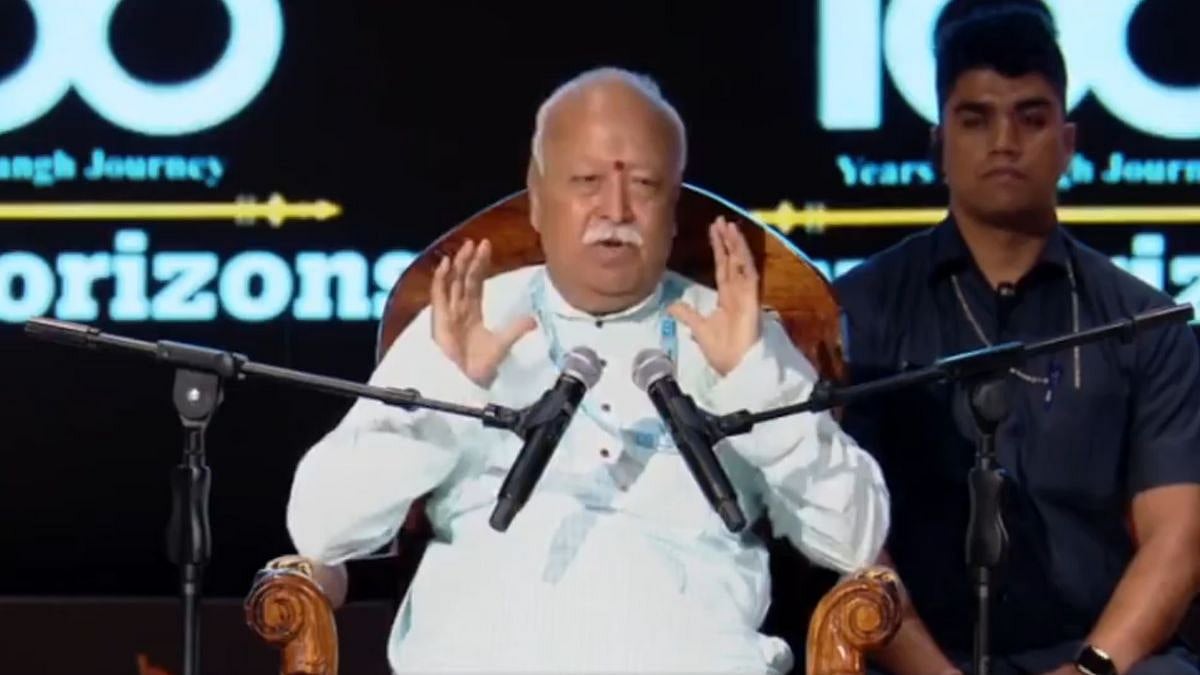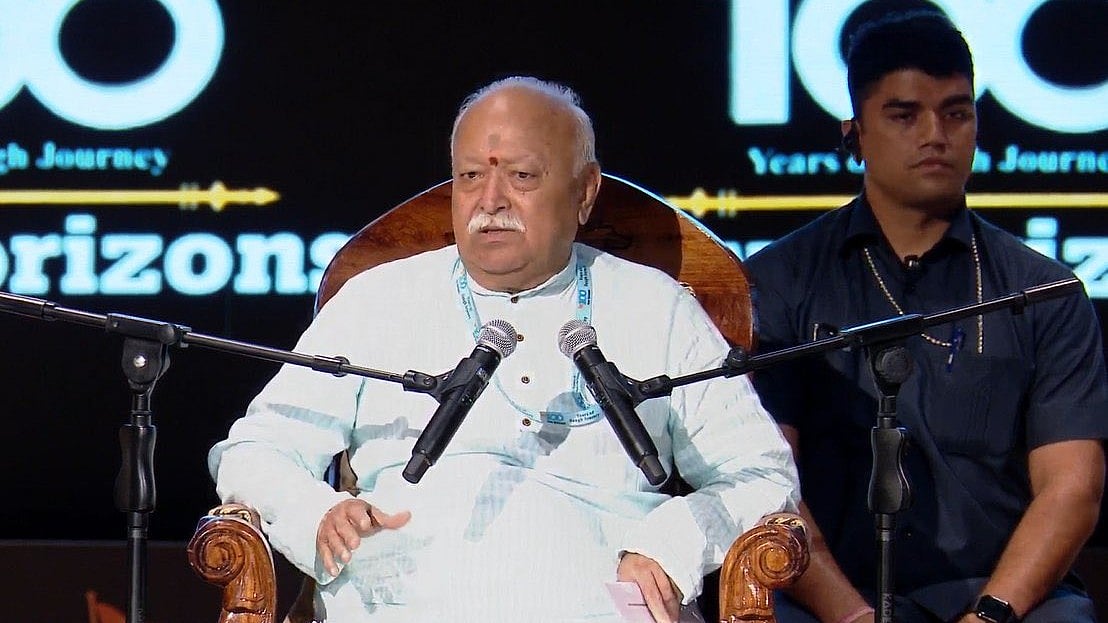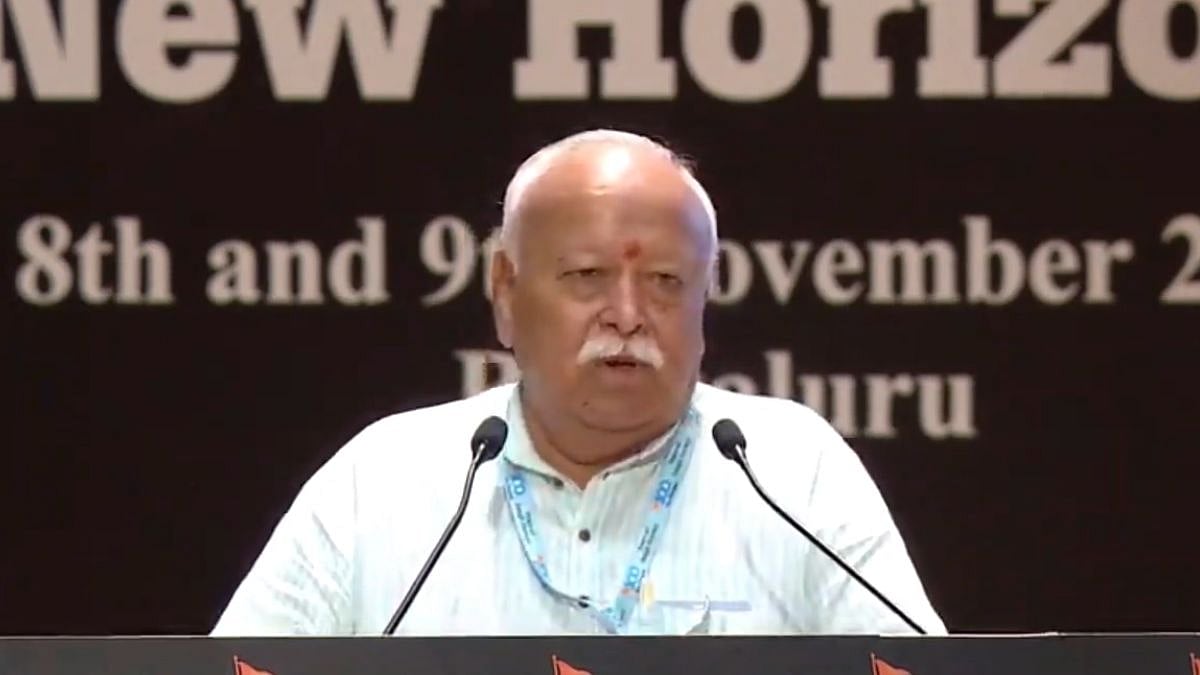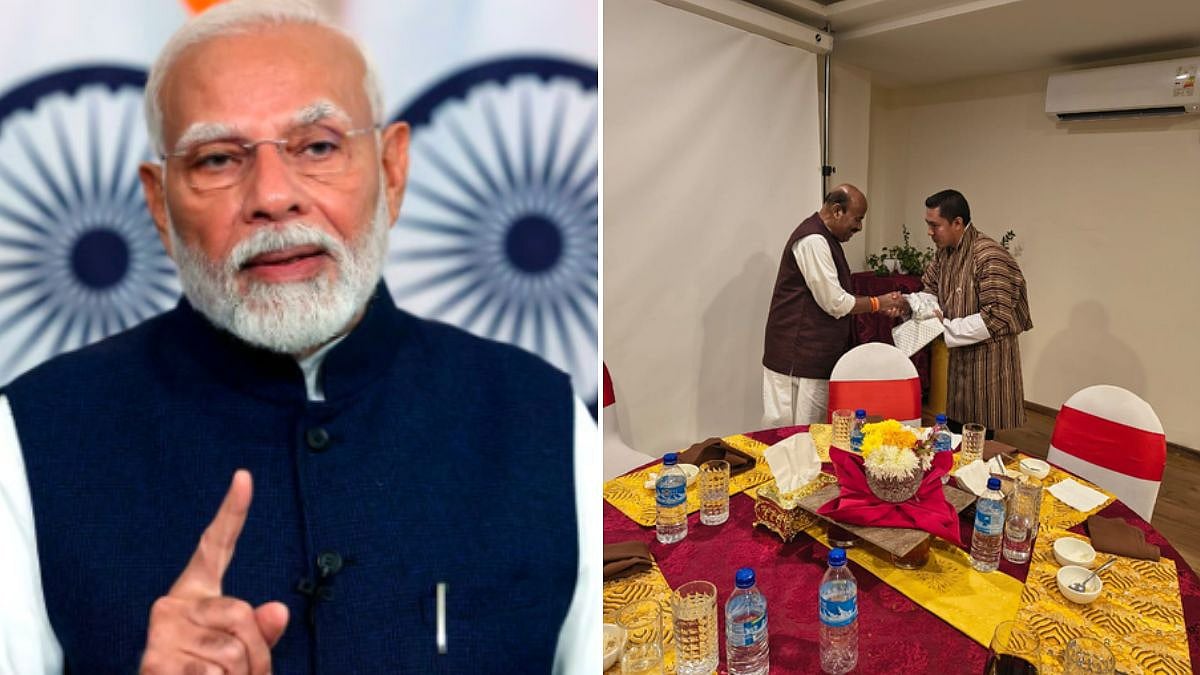Bengaluru: The Rashtriya Swayamsevak Sangh (RSS) has stated that it does not support any individual or political party, but stands firmly behind policies that serve the nation’s interests.
RSS Sarsanghchalak Mohan Bhagwat made the statement during a two-day lecture series in Bengaluru, organised to commemorate the centenary of the RSS.
Answering a question on why the Sangh does not support any political party, Bhagwat said, “We do not support any political party. We do not participate in electoral politics. The Sangh is engaged in uniting society, while politics by nature is divisive.”
“We support policies. Especially now that we are a social force, we will use our influence to support the right policy -- not any individual or party. For example, we wanted a Ram Mandir in Ayodhya. Our volunteers supported those who stood for that cause and its construction,” he stated.
“So, the BJP happened to be involved then. But if the Congress had supported the Ram Mandir movement, our volunteers would have stood with that party as well,” Bhagwat added.

He explained that during those agitations, elections took place, and in most cases, there wasn’t a single-party contest but alliances. “Where the BJP supported alliance candidates, our volunteers supported the candidates who supported the cause. There is no affinity toward any particular political party,” he clarified.
“No party is ours, and all parties are ours — because they are Bharatiya (Indian) parties. We support Rashtra Neeti (national policy), not Rajneeti (party politics). We do this openly. We have our views and a vision for the direction this country should take, and we support whoever works toward that direction,” Bhagwat stated.
He emphasised that there is no question of aligning with the slogan of any political party. “There are volunteers in many parties who think like the Sangh. We aim to organise the entire society without excluding anyone,” he said.
“Even present opponents are potential volunteers. The only thing the Sangh seeks is the betterment of the country,” Bhagwat maintained.
When asked why the RSS uses the Bhagwa Dhwaj (saffron flag) instead of the national flag, and why some people harbour animosity toward the Sangh, Bhagwat explained, “The Sangh began in 1925, and we needed a symbol for the organisation. Dr Hedgewar said the Sangh belongs to us. "If our sister or brother gets married, we don’t ask for donations -- we take loans. We will never beg for our work. The Sangh is ours, and we must contribute. But there should be no ego in our contributions. It should not be a donation, but an act of dedication and devotion. Hence, we give Guru Dakshina (offerings). For this, there must be a Guru. But a person cannot be a Guru, as he has a limited lifespan,” he said.
“Every sinner has a past, and every saint has a future. Situations change. Therefore, there should be a permanent symbol of our glorious culture and Hinduness -- and that is the Bhagwa Dhwaj. It has always been and remains our Guru,” he said.
Bhagwat added, “The Bhagwa Dhwaj was chosen as our Guru. The national flag was finalised in 1937. The flag committee unanimously recommended the traditional saffron flag as the national flag of independent India. However, Mahatma Gandhi intervened and suggested a Tricolour flag, with saffron at the top.”
“Since its creation, the Sangh has respected, paid tribute to, and protected the Tiranga Dhwaj (national flag). It was first hoisted in 1933 at a Congress session in Maharashtra. Ever since the formation of this flag, we have stood in its defence,” he said.
“When the court later ruled that the national flag could be hoisted by private organisations, we began hoisting it on January 26 and August 15 at all Shakhas. So, there is no conflict between the Bhagwa and the Tiranga. Every Communist party has a red flag; the Congress party has a Tricolour with a symbol. We have the Bhagwa -- and we respect it. That is the reality,” Bhagwat clarified
Responding to questions about perceived media hostility toward the RSS, Bhagwat said, “Why should we answer every question? Not every question deserves an answer. There are people whose role is to raise doubts about the Sangh -- and that’s fine. We don’t need to respond to everyone; we have more important work to do.”
“Over the years, such criticism has only made us more popular. We even encourage people to ask more questions. We are doing our work sincerely and for the nation’s good. Still, there will always be some who, despite knowing the truth, choose to criticise us,” he said.
(Except for the headline, this article has not been edited by FPJ's editorial team and is auto-generated from an agency feed.)







